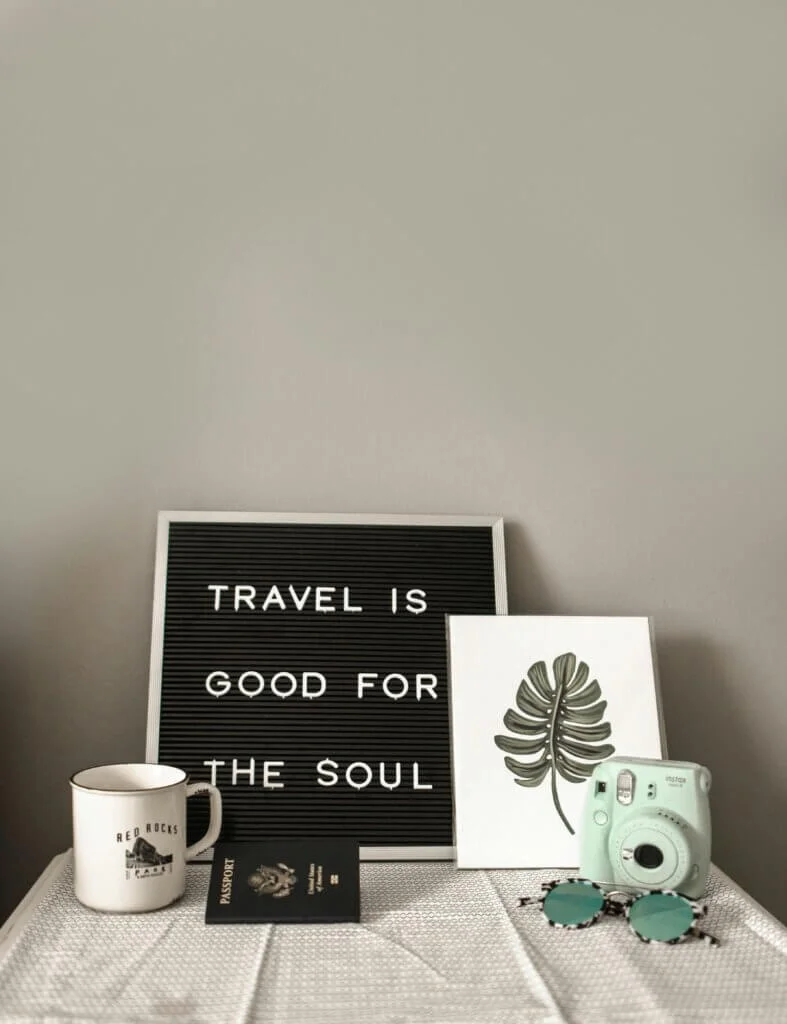Solo travel is a transformative experience that offers a range of unique benefits, allowing individuals to embark on a journey of personal growth and self-discovery.
Traveling alone provides the freedom to create a personalized itinerary, enabling travelers to explore destinations at their own pace and according to their preferences. This autonomy can be particularly empowering, as it allows for spontaneous decisions that may lead to unexpected adventures.
One of the most significant advantages of solo travel is the opportunity to step outside one’s comfort zone. Venturing alone into unfamiliar territories encourages individuals to face challenges head-on. Whether it’s navigating public transport in a foreign city or asking locals for directions, these experiences foster a sense of confidence and resilience. As travelers overcome barriers, they often gain valuable insights into their capabilities and adaptive skills, enhancing their problem-solving abilities.
Read More: The Best Solo Travel Destinations for Women
Additionally, solo travel facilitates authentic interactions with diverse individuals. When traveling alone, one is more likely to engage with locals and other travelers, creating opportunities for new friendships and connections. This social aspect may lead to cultural exchanges and enriching dialogues that would be less likely in a group setting. By embracing different cultures on their terms, solo travelers not only broaden their horizons but also nurture a deeper appreciation for global diversity.
Despite common misconceptions that traveling alone is lonely or unsafe, solo adventurers often report profound feelings of empowerment and independence. These individuals learn to trust their instincts and navigate the world on their own terms, leading to a stronger sense of identity. Ultimately, choosing to embark on a solo journey can be one of the most rewarding decisions, offering a unique platform for exploration and self-exploration.
Planning Your Solo Trip
Embarking on a solo travel adventure necessitates careful planning to ensure a rewarding and safe experience. The first step in planning your solo trip involves selecting the right destination. It’s crucial to choose a location that not only excites you but also caters to solo travelers. Research places known for their friendliness, safety, and attractions suitable for individuals, allowing you to enjoy the journey while connecting with other travelers or locals.
Accommodations play a vital role in your trip’s success. Look for lodgings that are safe, reputable, and welcoming to solo travelers. Consider staying in hostels, guesthouses, or hotels with positive reviews highlighting their comfort and security. These options often provide opportunities to meet other travelers, offering a sense of community during your journey.
Creating a flexible itinerary is essential when traveling alone, as it allows for spontaneity while also ensuring that you have a structured plan. Prioritize key attractions and activities but leave room for unexpected adventures. Make a list of must-see sights, but be open to changing plans based on recommendations from locals or fellow travelers. This flexibility can lead to enriching experiences that might otherwise be missed.
Learn More: Essential Marketing Tools to Drive Traffic and Leads for Your Business in 2025
Budgeting is another critical aspect of travel planning. Outline your expected expenses, including accommodation, food, transportation, and activities. Allocate extra funds for unexpected costs to avoid financial stress. Utilize travel apps or websites that compare prices for various services, ensuring that you maximize your budget. Additionally, consider your safety while budget planning by allocating funds for secure transportation options and emergency situations.
Finally, prioritize safety by researching your destination’s local customs, emergency numbers, and health services. Equip yourself with essential gear such as a reliable bag, a portable charger, and first-aid supplies to enhance your preparedness. By taking these steps, you can confidently embrace solo travel, making the most of your independent exploration.
Making Connections While Traveling Alone
Traveling alone can be a liberating experience, offering a unique opportunity for self-discovery and adventure. However, it can also feel isolating at times. To enrich your travel journey, it is beneficial to actively seek connections with others. One effective method is to join group tours. These organized excursions not only provide a structured way to explore new destinations but also present a chance to meet like-minded individuals who share similar itineraries and interests. Engaging with fellow travelers during these tours can facilitate instant rapport, fostering potential friendships that might extend beyond the trip.
Another avenue to consider is attending local events. Whether it is a cultural festival, a cooking class, or a community gathering, these events immerse you in the local atmosphere while providing ample opportunities to connect with both locals and fellow travelers. Engaging in shared experiences can ignite conversations and allow you to form meaningful connections. By participating in local activities, you also gain a deeper appreciation of the culture and community around you.
Read More: Safety Tips For Traveling Alone
In today’s digital age, travel apps can be invaluable tools for solo travelers looking to meet others. Platforms such as Meetup or Couchsurfing can facilitate connections with fellow travelers or locals interested in sharing experiences. Through these apps, you can join groups based on shared interests or even find a travel buddy for a day of exploration. Always approach these meetings with an open mind, as they can lead to enriching interactions that enhance your travel adventure.
Lastly, don’t underestimate the power of striking up casual conversations with locals. A simple question about directions or a recommendation for a good restaurant can lead to more in-depth discussions. By showing genuine interest in their culture, you can create personal connections that provide insights that guidebooks cannot offer. Building a support network while venturing into new environments is crucial, as it not only enhances your experience but also creates lasting memories. Engaging with others transforms your solo travel into a more meaningful journey.
Dealing with Challenges of Solo Travel
Traveling alone undoubtedly offers a unique set of experiences that can become both invigorating and daunting. Many solo travelers encounter common challenges that can test their mental resilience and adaptability. One of the primary issues is loneliness. While the freedom of solo travel is liberating, it can sometimes lead to moments of solitude that may feel overwhelming. To combat this, aspiring solo travelers are encouraged to engage with locals or fellow travelers, whether by joining group tours, staying in hostels, or attending local events. These interactions can foster connections, providing a sense of community and alleviating feelings of isolation.
Another challenge frequently faced is navigating cultural differences. When traveling to unfamiliar destinations, solo travelers might feel apprehensive about how to communicate and engage respectfully with local customs. To bridge this gap, it is beneficial to conduct thorough research about the destination’s culture and societal norms before arrival. Learning a few key phrases in the local language can also facilitate smoother interactions and enhance the travel experience.
Moreover, unplanned situations, such as lost passports, wrong bookings, or unexpected changes in itinerary, can generate stress during solo journeys. Prior preparation is essential here; solo travelers should always have copies of important documents stored securely and have backup plans for accommodation and transport in cases of emergencies. Utilizing technology, such as travel apps and digital organization tools, can also streamline the management of travel logistics.
Ultimately, embracing flexibility and maintaining a positive mindset are crucial strategies for overcoming the challenges faced during solo travel. With the right mindset and preparedness, solo travelers can transform obstacles into learning opportunities, enriching their journeys while navigating the world alone.


